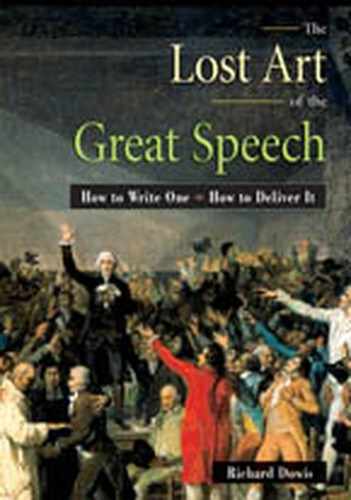Make them understandable
Sometimes statistics just need to be compared with something that the audience can more easily relate to. For example, a billion is a number that is almost impossible for the typical person to comprehend. And a trillion—well, that really boggles the mind. So if you refer to a trillion dollars, you might as well be speaking a foreign language. Your audience just won't be able to grasp it.
A speech about the cost of the federal government's antiPoverty efforts included this statement:
Since President Johnson launched his idealistic War on Poverty in 1965, this country has expended a whopping $5.4 trillion on programs for the poor. That's a lot of money.
Ho hum. Zzzzzz. Everybody knows $5.4 trillion is a lot of money. So is $5.4 billion. And so, in fact, is $5.4 million.
With a little thought and research, the speech writer could have dramatized the point this way:
Since President Johnson launched his idealistic War on Poverty in 1965, this country has spent $5.4 trillion on programs for the poor. How much is $5.4 trillion? Well, if you had that amount today, you could buy every farm in the United States. You could also buy every factory and every office building. You could become a communications magnate that would make Ted Turner look like a piker. You could own every radio and TV station and every telephone company in the country. You could also buy every retail and every wholesale business, every hotel, every power company, every airline, every railroad, and every trucking company.
And with the money left over after all those purchases, you could buy the nation's entire commercial maritime fleet.
Makes you think, doesn't it?
If a trillion is an unimaginably large number, it follows that onetrillionth is an unimaginably small number. An oil-company executive, in a speech to the Society of Management Accountants, used a dramatic comparison to explain the meaning of ''parts per trillion'':
Advances in technology enable us to measure things that we could never measure before. Scientists, for example, are now able to speak in terms of parts per trillion. One trillionth is an awfully small number. One trillionth of the distance to the earth's moon is 1.5 hundredths of an inch. That's roughly like comparing the thickness of a human hair to the distance traveled one-way by the Apollo astronauts.
Compare that use of statistics with this, from a speech to the Economic Club of Detroit by the head of a large insurance company. The speaker uses statistics to make a point about improper or unnecessary medical treatments:
Up to 50 percent of prescribed antibiotics are not indicated, resulting in a loss of a quarter- to a half-billion dollars annually. Of 1.6 billion prescriptions dispensed annually, up to 50 percent are taken incorrectly, resulting in a loss of $14 billion in health care. 40 percent of medications prescribed for the elderly may be ''non-essential.'' 20 percent to 30 percent of all patients admitted to a hospital suffer an adverse patient occurrence. 44 percent of coronary artery bypasses may be unnecessary.
In that brief passage, the speaker cited 6 percentages, along with some dollar figures. How many do you suppose his listeners were able to remember five minutes after hearing them?
There are occasions when using a lot of raw numbers may be necessary, but it is important to understand that the audience is not likely to remember them. If recalling the actual numbers is important, it's a mistake to use them as that speaker did. There are simply too many related numbers too close together. If the numbers, taken as a whole, leave the impression the speaker desires, then using the numbers can perhaps be justified.
